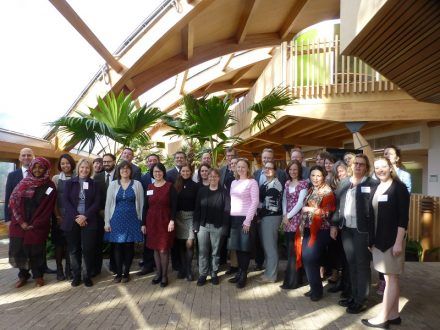Essex expert group meets to discuss the implementation of the newly adopted Nelson Mandela Rules

On 7-8 April 2016, PRI and the University of Essex Human Rights Centre hosted a meeting of criminal justice experts to review the revised UN Standard Minimum Rules for the Treatment of Prisoners, adopted as the Nelson Mandela Rules in December 2015.
The experts identified legal, policy and operational issues that may arise for prison administrations in interpreting and applying the revised Rules.
Discussion focused on the areas of the Rules that have been subject to the most substantive change:
- respect for dignity
- restrictions, discipline and sanctions
- incident management (complaints, death and injury in custody)
- prison management
- healthcare
- contact with the outside world.
Questions unpicked included, for example: Should doctors have access to disciplinary files so they know who is in solitary confinement on any day? What constitutes ‘meaningful human contact’ under the rule on solitary confinement? In what circumstances might family visits be legitimately restricted? What measures do prison administrations need to take in case of a transfer of a prisoner to a court or another facility?
This meeting was the third in a series of ‘Essex’ meetings. The first two meetings were held in 2012 and 2014 in advance of the Intergovernmental Expert Group Meetings (IEGM) mandated to revise the Standard Minimum Rules, and produced the ‘Essex papers’.
An ‘Essex III’ paper will be published later this year, which will identify key questions that may arise in relation to each revised Rule and proposed interpretations and responses to these questions.
This paper and other consultations that PRI is organising at the national and regional level will feed into guidance on how to implement the revised Rules, to be developed under a new project PRI is embarking on with the OSCE Office for Democratic Institutions and Human Rights.